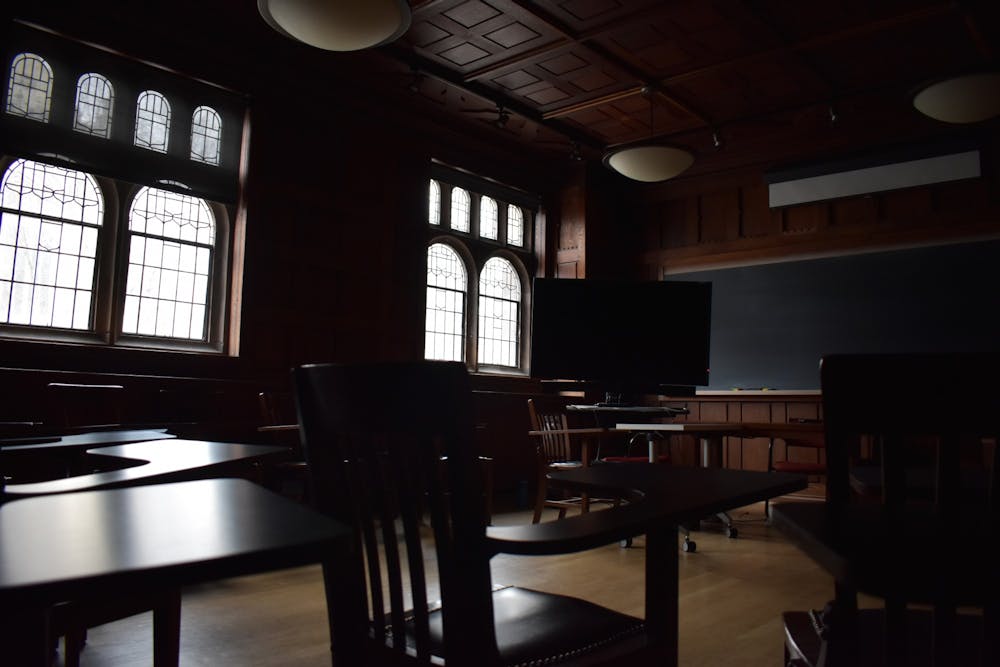In high school, I had a better relationship with civil discourse. I was part of my school’s We the People team, and we competed in competitions centered on debating pressing constitutional issues. At Princeton, though, I noticed that things changed. I began dreading certain classes’ lectures and precepts. It wasn’t until recently that I realized why. My relationship with civil discourse wasn’t fracturing because I was becoming more radical or college-level discussions were more complex (I got deep into constitutional law in high school, studying everything from Foreign Intelligence Surveillance Court to the definition of speech). It was because, in my department at least, I’ve found that “civil discourse” is “no holds barred.” Anything is up for debate, and that includes my right to be in the classroom at all.
The reality is, civil discourse does not always have symmetric asks of everyone involved. For instance, a student of color may be asked to defend why marginalized communities should have equal rights if their oppression pleases white people and makes the latter better off. If they respond with frustration, they may be accused of being “uncivil.” However, this would be a misplacement of blame. To demand that some students defend their presence, their identity, and their very existence is an uncivil act, regardless of how politely the demand is posed. Anger or frustration in a student’s response does not invalidate their argument, as they are responding to an act of aggression.
Ultimately, students of color should not have to deal with a lower-quality educational environment simply so their white peers can frolic around in thought experiments that carry no valence for them. Racist remarks should have no place in classroom “civil discourse”; they inflict trauma and degrade a significant portion of the student body.
I have encountered classmates who justified racial degradation and disenfranchisement on the basis of continued white prosperity in one class. In another, I was asked if Brown v. Board of Education “should have happened.” Over the years, I’ve heard innumerable racist stereotypes recounted as though they were fact. My academic experience has not been enriched by any of this. I carefully monitored the tone of my responses, but the expectation to do so shouldn’t be on me: my classmates should be expected to treat students of color with respect.
Students of color don’t have a responsibility to educate and correct their peers. Read a book. Consult the internet. Take a class centered around understanding race and difference, such as those offered within the African American Studies department. Princeton students have many resources at their disposal. At this point, if they remain ignorant about the pervasive effects of race and racism and instead seek to belittle their classmates, it is willfully so.
The concepts of civil discourse and mutual respectability ask us to treat every idea as though it is worthwhile, holding them up to the light and investigating them carefully and unemotionally. Plainly put, this is nonsense. Some ideas are not worth discussing; the basic and fully-answered question of whether or not racism is real is a distraction from talking about how to handle its innumerable impacts. This is not to say that civil discourse is entirely bankrupt.
As James Baldwin said, “We can disagree and still love each other unless your disagreement is rooted in my oppression and denial of my humanity and right to exist.” We can discuss many things calmly and politely. My worth is not one of them, and no one is entitled to conversation, civility, or respect if they think otherwise.
Brittani Telfair is a junior from Richmond, Va. concentrating in the School of Public and International Affairs. She can be reached at btelfair@princeton.edu.








